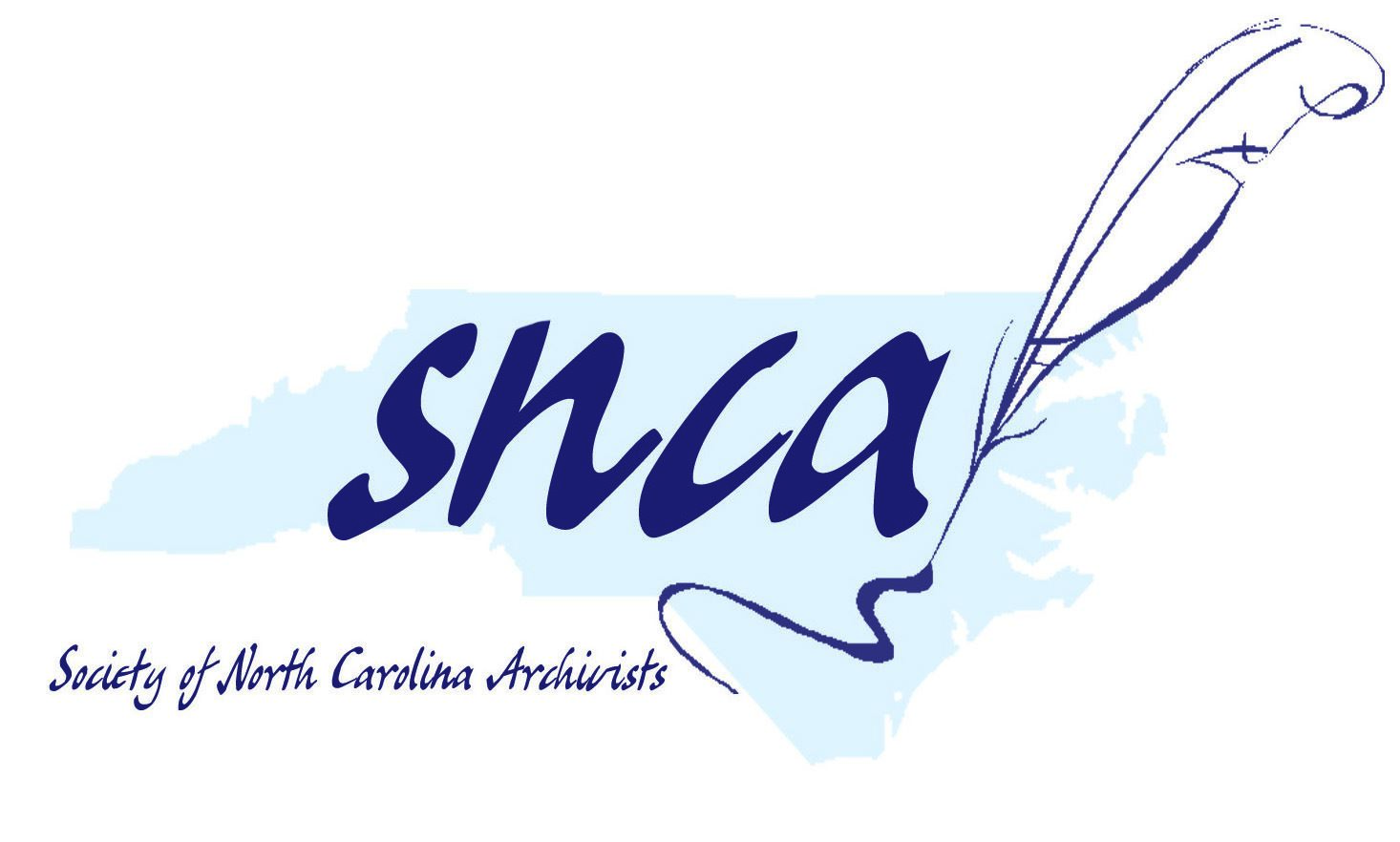Register here for SNCA's 2022 annual meeting, held virtually on March 17, 2022.
Renew your SNCA membership online today, too!
Questions or comments? Email Program Committee chair/Vice President Stephanie Bennett at bennetse@wfu.edu.
Anytime: Escape from your corner of NC
-Greta Browning, Appalachian State University, on "Tourism in the NC High Country: Highlights from the W. L. Eury Appalachian Collection"
-Samantha Crisp, Outer Banks History Center, on "Do I Need a Ticket for This? Documenting and Supporting Tourism at the Outer Banks History Center"
Wednesday, March 16: Workshops
The State Archives of North Carolina regularly offers records management classes to government employees on a variety of topics. For our annual meeting, State Archives Records Analyst and SNCA Education Chair Josh Hager will offer two courses: Essential Records and Disaster Preparedness and Best Practices for Files and Filing, along with tips for how to share information within your institution and to potential donors.
Essential Records and Disaster Preparedness, 9 am-12 noon: attendees will learn how to identify the essential records needed to continue operations and how to mitigate the risk those records face in the event of a natural, technological, or other kind of disaster. Attendees will also learn how to incorporate records and manuscripts into Continuity of Operations Plans.
Best Practices for Files and Filing, 1-3 pm: attendees will learn how to make their filing system more efficient by defining different filing methodologies and their pros and cons, and how to make their filing systems match up with any existing retention schedules. Attendees will also learn how to overhaul an existing system from the ground up. This workshop will include practices and tips applicable to digital and analog records and manuscripts.
Thursday, March 17: Conference sessions
Plenary: 9:15 am-10:15 am, presentation by Shana Bushyhead Condill, Executive Director of the Museum of the Cherokee Indian
Session 1: 10:25-11:10 am, Lightning talks
Emotional labor is a recent topic of interest in library and archival work, and research has explored how library professionals experience emotional labor in the workplace. However, there is a significant gap in terms of addressing how archive workers, from their own perspective, process and regulate emotional labor. We will facilitate discussion about how the presenters and others in the field have experienced emotional labor in the workplace. In particular, the presenters will discuss how processing graphic and violent historical materials impacted their emotional state, as well as methods for regulating emotional labor.
During 2021, the Duke University Archives completed a project with Duke University’s Facilities Management Department (FMD) to transfer the architectural records of Duke University. This project was a massive undertaking in a relatively short timeframe and required both creativity and resilience to appraise the material and develop coherent intellectual control. This presentation will describe the Duke University Archives’ approach to this project, detail the challenges faced and lessons learned, and outline steps for future work.
Business meeting: 11:15-12:15 pm
Lunch break: 12:20-1:15pm
Session 2: 1:15-2:05pm, Records Keeper or Keeper of Record: The Search for Primary Sources in 1898 Coup D’état Citations. Rebecca Baugnon and Nicole Yatsonsky, University of North Carolina Wilmington
As archivists in Wilmington, we field numerous research requests on the 1898 coup d’état and massacre, while grappling with a difficult reality – primary sources scattered across the country, erroneous citations, and a historic narrative transformed for public consumption. Though supportive of our role in ongoing reconciliation, we feel compelled to confront the distinction between credibility and reliability in academic, journalist, and literary works. In this presentation, we will explore how we are redefining the archivist’s role as a keeper of record through a research project analyzing commonly cited primary sources pertaining to the 1898 coup.
Session 3: 2:15-3:05pm, Reimagining Outreach When You Can’t Meet Face-to-Face: Archivists Adjust During the Pandemic. Stacy Krim, Kathelene McCarty Smith, and Beth Ann Koelsch, University of North Carolina at Greensboro
The foundation of outreach, collection development, and advancement is establishing personal relationships. Gaining the trust of stakeholders is often based on in-person engagement, which has been lost during the global pandemic. But drastic times call for creative solutions. In this panel presentation, archivists from UNC Greensboro will discuss how each revisited their outreach strategies to offset health concerns about COVID risks with the need to continue to move forward with departmental goals.
Social session: 3:15-4:15pm
Start with a guided stretch and a little zine tutorial, then discussion: bring/share something (abstract concepts, people, snack foods, etc) that's been bringing you joy lately
